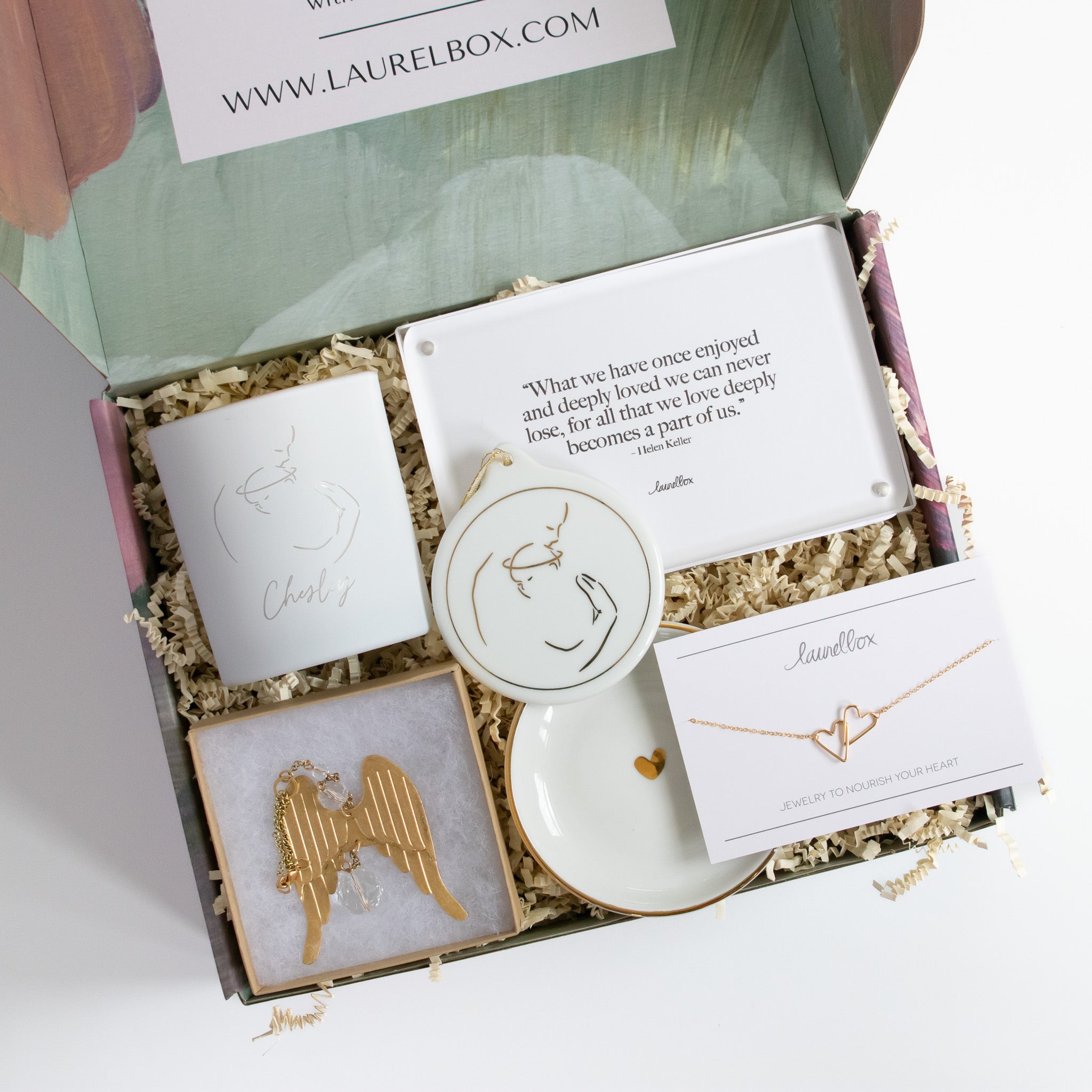Teaching Your Kids About Grandparents that have Passed on
Losing a parent is one of the most devastating experiences that can occur in someone’s life. If one or both of your parents passed away before you have children, new feelings of loss and grief can emerge. As you raise your own children, the knowledge that your kids will never know or be able to enjoy your parents can be a huge grief trigger. It can also be painful to realize that your parents will never meet your children, or be able to experience the joy of being a grandparent.
This can be further complicated if there is a bonus parent that remarried your mom or dad. It can be a tricky balance of wanting to respect the feelings of their step-grandparent, while also honoring the importance of preserving your departed parent’s legacy.
If you have been looking for a way to talk to your kids about grandparents that have passed on, here are a few ideas to get you started.
Tell your children stories
One of the best ways to teach your children about their grandparents that have passed on is to share stories about the life of your parents. Kids love hearing family stories from the years when their parents were kids themselves, and you can help them feel connected to their grandparents by retelling these moments.
If you are struggling to think of stories to share, you can always start with telling your kids about your parents' hobbies, things they enjoyed, or things they did not enjoy. My own grandmother passed away when I was an infant, and I have always loved hearing my mom share stories about what she was like. From what my parents have shared, my grandmother loved hosting friends at her home, enjoyed fashion, and enjoyed decorating. As I have grown up, it has been really sweet to recognize that I enjoy these types of things that were so important to my grandmother.
You can also help your child feel like they know their grandparents better by describing their personalities. My family always shared that my grandmother was fun, vivacious, and the life of every party. Hearing these stories was especially important for me because my grandmother passed away from suicide. I think because there can be a cultural stigma around suicide, it made a huge difference for me to hear stories about her joy filled personality. My mom often refers to my grandmother’s personality as “sparkly,” which has given me such a sweet picture about what it must have been like to be in her presence.
It also helps children if you explain clearly what happened to your parent. Obviously, it is very important to use discretion and make sure that any information you share about your parent’s death is age appropriate. But, keeping the circumstances of your parent’s death a secret past when sharing would be developmentally appropriate for your child can be harmful. Because my own grandmother passed away from suicide, my family waited to share the circumstances of her death until I was 13 and more able to understand the nuances of the physical and mental health issues that my grandmother experienced. Learning this information was hard, but my mother did a great job opening the lines of communication for me, giving me space to ask questions, and making sure that I could feel her support as I processed the circumstances of my grandmother’s passing.
The Mental Health Commission of Canada shares this helpful information in this resource about how to talk to children under the age of 12.
“Children should also be given the opportunity to have their feelings acknowledged, even if it doesn’t seem like grief or the grief seems short-lived. Encourage the child to express their feelings. Listen well and observe their actions. Children often show adults how they need to be supported.”
Create a photo album of your parent
If you need help telling the story of your parent’s life, creating a photo album of them can be a great prompt for sharing with your child. Children love looking through photo albums with old pictures, and this can be a great way to get your child engaged in learning about their grandparent.
This photo album will serve to tell the story of your parent’s life, so be sure to include photos of many different stages of their life. You can include photos of your parent’s childhood, their life as a young adult, and of them as a parent. Your kids will love seeing pictures of you as a child, so include any photographs that will show your mom or dad with you as a child.
You can also include pictures of them doing things they loved, traveling, and enjoying holidays. If you have photographs of your parents with you as a baby, be sure to include those too! Your kids will love imagining you as a baby, and feel real connection to your mom or dad when they see these pictures.
When you share this album with your child, you can explain their relationship to their grandparent. Help your child find connection to your parents by saying “you have his eyes” or “you have her joyful personality.” The connection of seeing photographs and hearing stories will help your kids feel close to their grandmother or grandfather.
Get your child a remembrance gifts
Photographs of family members who have passed on are treasures for those who are left behind. If you want to give your child a remembrance gift to help them feel connected to your parents, you can give them a memorial photo frame with a picture of your parents. This can be displayed in their room or in another prominent space in their house.
You can also have pictures of your parents framed in your home, which will help your children feel connected to their grandparents. Whether you frame photos of your parents’ childhood, or your own years growing up with your parents, your kids will feel their presence when they see these photos. My mom always had a photo display of her family and my grandmother in the window of her bedroom, and it was always special to me!
Another of my favorite ways to teach your kids about grandparents who have passed on is to give them a necklace in memory of a loved one. I love the idea of giving your children a Custom Handwriting Necklace of their grandparent’s handwriting, or giving them a Remembered Forever Infinity Necklace. Both options are sweet and thoughtful.
Remember your parent at special times of the year
The holidays can be one of the hardest times of the year after you have lost a parent, and that can be a good time to share with your children about their grandparents, and about why you might be struggling extra during the more festive times of the year. We even love the idea of getting a memorial ornament for the tree that honors your children’s grandparents. This In Memory Feather Ornament is a sweet one that can be customized with the family member’s name.
Your mom or dad’s birthday might be a very difficult time for you, so it helps to make a plan on how to honor and celebrate their life. You can light this special candle below, eat their favorite food, or visit their favorite city park. Celebrating their grandparents will be a special memory for your kids.
Another special way to teach your kids about grandparents who have passed on is to celebrate their favorite holidays and tell your kids about fun times you had with your parents on those holidays. If your mom loved Halloween, it can be fun to pull out photos of her best costumes, and decorate your home together “just like grandma used to!” If your dad always grilled out on Fourth of July, you can pull out some burgers and talk about some of the best outdoor parties he threw over the years. The best way to help your kids feel their grandparents' presence is to incorporate stories about this into your life in a natural way, and sharing about them on holidays is a great way to practice this!
While your kids will not ever know their grandparents, and you still might be grieving your parents, your kids can hear about their life through you. It is all about telling their story, helping your kids know who your parent truly was, and sharing what your parent meant to you.










